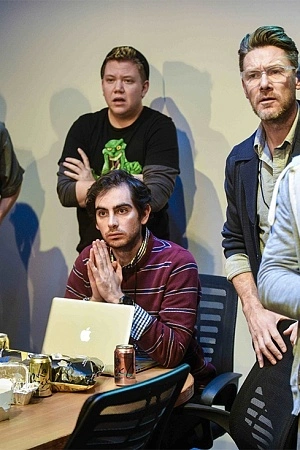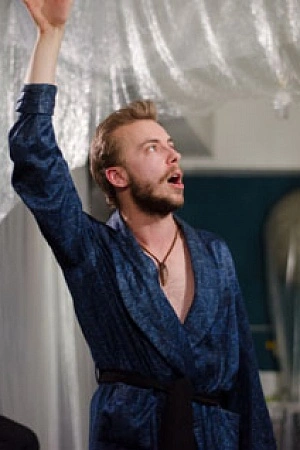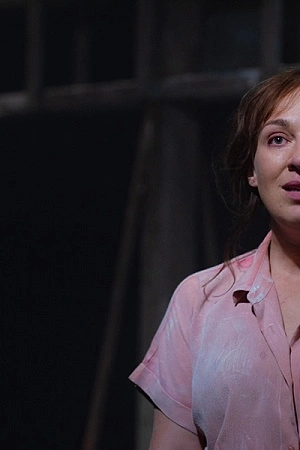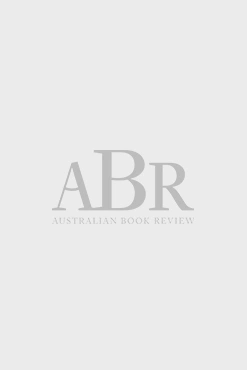Tartuffe (State Theatre Company of South Australia and Brink Productions) ★★★1/2
Web articles proliferate that aim to show the disparity between Donald Trump’s religious sentiments (‘I think the Bible is certainly, it is the book’) and his decidedly unholy behavior (including, but not limited to, numerous allegations of sexual harassment and assault). It is from within this space – what Martin Luther King Jr called the ‘the agonising gulf between the ought and the is’ that ‘represents the tragic theme of man’s earthly pilgrimage’ – that Moliére’s great comic subject, the impostor Tartuffe, emerges.
Twice banned in the 1660s for its attack on religious hypocrisy and excessive piety, the five-act version of Tartuffe we know today finally premièred in February 1669. It was an enormous popular success, though purchasing a ticket was sufficient ground for excommunication from the Catholic Church. As is pointed out in the rambling meta-theatrical monologue that opens this Tartuffe, newly adapted by Phillip Kavanagh, religious mockery was not taken lightly in an age in which the violent polarisation of faith – Roman Catholics on one side, Protestant Huguenots on the other – was the source of profound conflict (the French Wars of Religion, and later the Huguenot rebellions).
Continue reading for only $10 per month.
Subscribe and gain full access to Australian Book Review.
Already a subscriber? Sign in.
If you need assistance, feel free to contact us.










Leave a comment
If you are an ABR subscriber, you will need to sign in to post a comment.
If you have forgotten your sign in details, or if you receive an error message when trying to submit your comment, please email your comment (and the name of the article to which it relates) to ABR Comments. We will review your comment and, subject to approval, we will post it under your name.
Please note that all comments must be approved by ABR and comply with our Terms & Conditions.